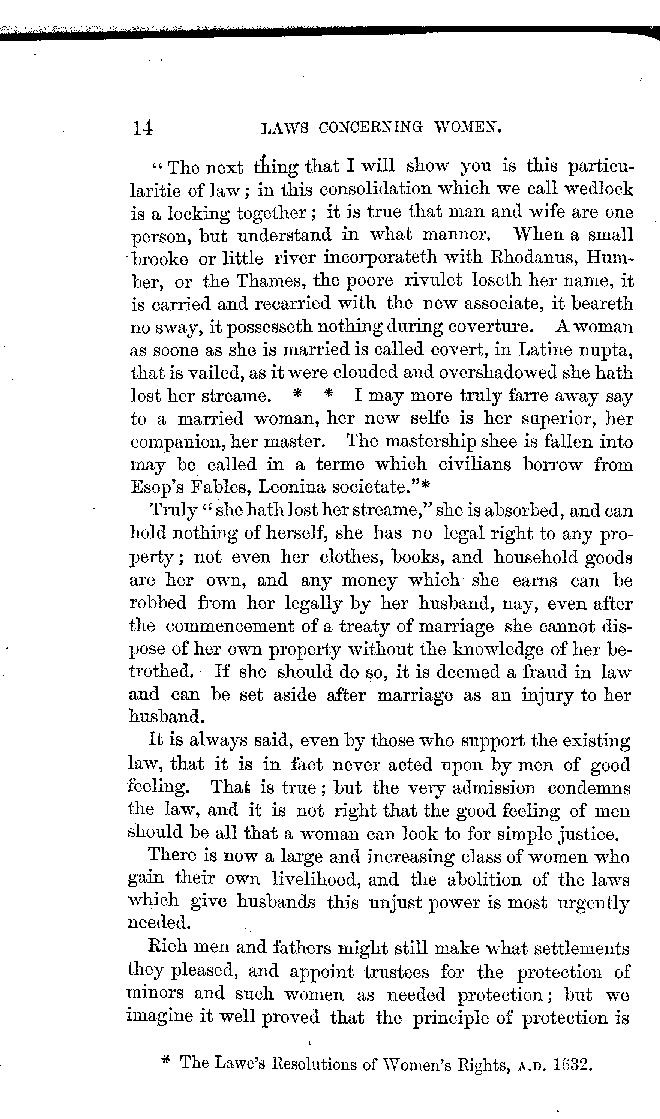"The next thing that I will show you is this particularitie of law; in this consolidation which we call wedlock is a locking together; it is true that man and wife are one person, but understand in what manner. When a small brooke or little river incorporateth with Rhodanus, Humber, or the Thames, the poore rivulet loseth her name, it is carried and recarried with the new associate, it beareth no sway, it possesseth nothing during coverture. A woman as soone as she is married is called covert, in Latine nupta, that is vailed, as it were clouded and overshadowed she hath lost her streame. * * I may more truly farre away say to a married woman, her new selfe is her superior, her her companion, master. The mastership shee is fallen into be called in a terme which civilians borrow from may Esop's Fables, Leonina societate."[1]
Truly "she hath lost her streame," she is absorbed, and can hold nothing of herself, she has no legal right to any property; not even her clothes, books, and household goods are her own, and any money which she earns can be robbed from her legally by her husband, nay, even after the commencement of a treaty of marriage she cannot dispose of her own property without the knowledge of her betrothed. If she should do so, it is deemed a fraud in law and can be set aside after marriage as an injury to her husband.
It is always said, even by those who support the existing law, that it is in fact never acted upon by men of good feeling. That is true; but the very admission condemns the law, and it is not right that the good feeling of men should be all that a woman can look to for simple justice.
There is now a large and increasing class of women who gain their own livelihood, and the abolition of the laws which give husbands this unjust power is most urgently needed.
Rich men and fathers might still make what settlements they pleased, and appoint trustees for the protection of minors and such women as needed protection; but we imagine it well proved that the principle of protection is- ↑ The Lawe's Resolutions of Women's Rights, A.D. 1632.
